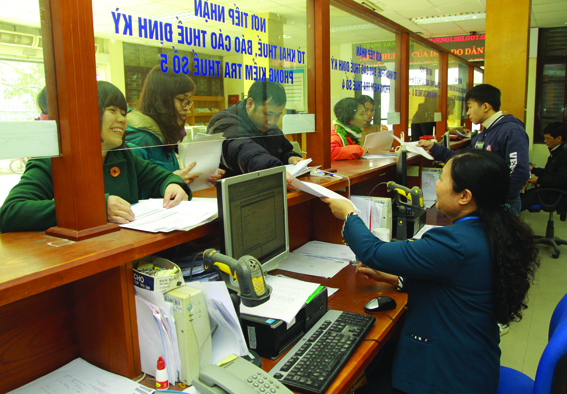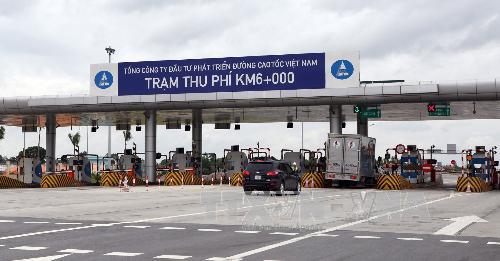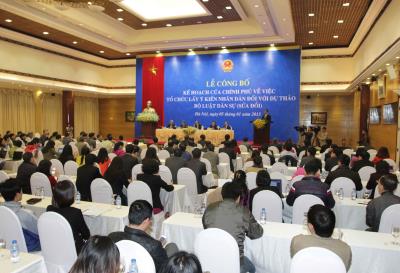The Ministry of Planning and Investment (MPI) is working on draft amendments to the Investment Law and the Enterprise Law, aiming to further reform investment procedures, remove burdens for investors and create a transparent and level playing field for enterprises of all economic sectors.
The draft amendments, notably, clearly define the concept of “foreign investor”. Accordingly, foreign investor means an organization or individual that does not hold Vietnamese nationality or that makes establishment registration in a foreign country or an enterprise established in Vietnam with foreign entities’ capital contributions accounting for 50 percent or more of its charter capital.
However, according to Phan Duc Hieu, head of the Central Institute for Economic Management’s Macroeconomic Policy Department, who is also a member of the Enterprise Law Drafting Board, there seems to be some confusion about the concepts of foreign investor and foreign-invested enterprise. Foreign investors are those who carry out procedures to establish new businesses or contribute capital to, or acquire shares from, existing businesses. Meanwhile, foreign-invested enterprises are enterprises with foreign investors’ capital contributions, which conduct investment and business activities in a specific sector or field.
“The draft Enterprise Law proposes no limitations on foreign investors’ rights to contribute capital to, or purchase shares from, Vietnamese enterprises, except cases subject to restrictions under specialized laws or international commitments. This means that the procedures for establishing new enterprises or acquiring shares or capital contributions applicable to domestic and foreign investors are the same,” Hieu said, stressing that the distinction between domestic and foreign investors could be recognized only when investors exercise specific business rights.
Another important issue is related to investment procedures. According to the draft Investment Law, the range of projects which must go through investment procedures would be narrowed to projects requiring environmental impact assessment; projects which are allocated or leased land or lead to change of land use purposes; projects subject to conditional investment; and projects applying for investment incentives or support. In addition, the current investment certificate would be replaced with the investment registration certificate. As explained by drafters, this move aims to reflect the purpose of the certificate which is to acknowledge investors’ registration for project implementation rather than certify the completion of their investment activities.
In parallel with simplifying investment procedures, the draft Investment Law also proposes stricter measures so as to better manage foreign direct investment. For example, the draft law stipulates that in case an investor fails to implement its project within 12 months after being granted an investment registration certificate, this certificate would be revoked. This punishment would also apply to cases of impossibility to contact investors or cases in which investors cannot find new sites for their projects after they are deprived of their land use rights.
Regarding enterprise registration certification, the MPI proposes two options for revising the Enterprise Law.
Under the first option, the names of business sectors and trades would no longer be included in the enterprise registration certificate and dossier.

Manufacturing machinery parts in Misumi Vietnam Co., Linh Trung EPZ (Ho Chi Minh City)
Photo: Thanh Vu/VNA
As per the second one, the certificate would only include a list of sectors and trades subject to conditional business. Enterprise founders would have to specify the sectors and trades in their enterprise registration dossier if they want to do business in such sectors and trades.
Currently, enterprises must register business sectors and trades they want to operate in. In case they expand their operation to other sectors and trade, they will have to carry out procedures for modifying their business registration certificates, otherwise they will be regarded as having committed a violation of law.
“Due to the current regulations, many enterprises have missed out on business opportunities because if they want to do more business, they are required to have their business registration certificates modified, and this can be a long and arduous process,” said Nguyen Dinh Cung, director of the Central Institute for Economic Management.
“The MPI proposes that the second option should be selected, because it is a big breakthrough in realizing the right to do business as outlined in the Constitution,” Minister of Planning and Investment Bui Quang Vinh said, adding that if enterprises wanted to deal in conditional sectors and trades, they would have to meet certain criteria.
The two draft laws are scheduled to be tabled to the Government for discussion in April 2014.-


